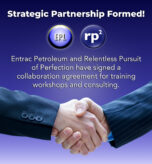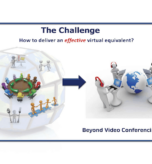Lessons from a Successful AAR Workshop in Cyprus
Fresh from a successful workshop in Cyprus, the conversation turned toward the concept of After Action Reviews (AARs). At first, the term “AAR” might sound like “average annual return” to an investor, or even “against all risks.” In this context, however, it meant After Action Review — a structured reflection process that plays a vital role in continuous improvement.
Why After Action Reviews Matter
In business, as in the military, where AARs originated in the 1980s, the practice ensures teams reflect immediately after completing an operation. The goal is simple: identify what worked, what didn’t, and what should change next time.
As one participant explained, AARs can be short and sharp — three or four people for 10 minutes — or expansive, involving entire teams and covering broader campaigns. The challenge is honesty: admitting mistakes, missed signals, or not following the plan. Yet this honesty is crucial because nothing kills performance faster than bad data or dishonesty.
The Cyprus Experience
The workshop in Cyprus went beyond the usual scope. It wasn’t just an operational review — it also covered planning, contracting in two countries, and lessons for setting up in new territories. Despite tight schedules, the team managed to complete the wells under budget and even made two discoveries.
A senior drilling engineer championed the process, convincing colleagues to participate. The commitment was remarkable: people extended rotations, stayed longer in Cyprus, or even flew in from the UK, Europe, and Houston just for the workshop. Over several days, the group generated 96 actionable items to feed into future programs.
Engagement and Atmosphere
The workshop wasn’t just technically productive — it was engaging. The team included drilling engineers, planners, subsurface experts, service providers, contracts staff, and venture office representatives. Everyone had a voice.
The client team did an excellent job of keeping spirits high, even announcing a well success mid-workshop during a call with the Cypriot president and ExxonMobil. The beachside setting in Cyprus certainly didn’t hurt either.
The Value of a Facilitator
One recurring theme was the importance of having an outside facilitator. Several engineers admitted that if they had tried to run the workshop themselves, they would have had little to contribute to the technical discussions.
A facilitator frees technical experts from logistics and timekeeping, allowing them to fully participate. They also bring an outsider’s perspective, having seen how multiple companies and contractors operate, and can share best practices that aren’t always published.
As one participant noted: “Why pay a senior drilling engineer to hand out badges and manage the clock, when their experience is better used contributing to technical discussions?”
Key Takeaways
- AARs are essential for continuous improvement, but need champions to drive them.
- Honesty and openness are critical for meaningful lessons.
- Preparation and participation across multiple teams lead to deeper insights.
- Facilitators add tremendous value by enabling experts to focus on what matters most.
The Cyprus workshop stands as a model: highly productive, collaborative, and a reminder of why structured reflection is a cornerstone of success.










